Madonna, Tom Hanks created trouble in ‘A League of Their Own’
It was Demi Moore, not Geena Davis, who was director Penny Marshall’s first choice for the lead role of female baseball phenom Dottie Hinson in 1992’s “A League of Their Own.”
But Moore made fatal professional mistake of getting pregnant, scuppering her shot at that epic role.
“She literally got f–ked out of the part,” Marshall posthumously cracks in “No Crying in Baseball: The Inside Story of ‘A League of Their Own’: Big Stars, Dugout Drama, and a Home Run for Hollywood,” by Erin Carlson, out now (Hachette Books).
And Davis wasn’t even the second choice for the now-classic movie, which tells the story of the All-American Girls Professional Baseball League, a real-life professional women’s baseball league that existed during World War II.
Seemingly every young actress in Hollywood wanted to be part of the movie, including Sean Young — who showed up to auditions in an “antique Yankees uniform.” Courteney Cox, Cindy Crawford, Sarah Jessica Parker, Tatum O’Neal, Brooke Shields, Marisa Tomei, Kyra Sedgwick, Robin Wright and even Marla Maples all vied for roles. Farrah Fawcett also wanted in, despite being in her 40s by then.
“When you see a movie in which all the leads are women and all the men are supporting parts, you want to be in it,” said Lori Petty, chosen to be Dottie’s kid sister, Kit.
Oscar-nominee Deborah Winger won the role of Dottie Hinson, giving the production more cachet.
Tom Hanks desperately wanted to be cast as Rockford Peach manager Jimmy Duggan, “hoping to spend a summer in baseball nirvana,” Carlson writes.
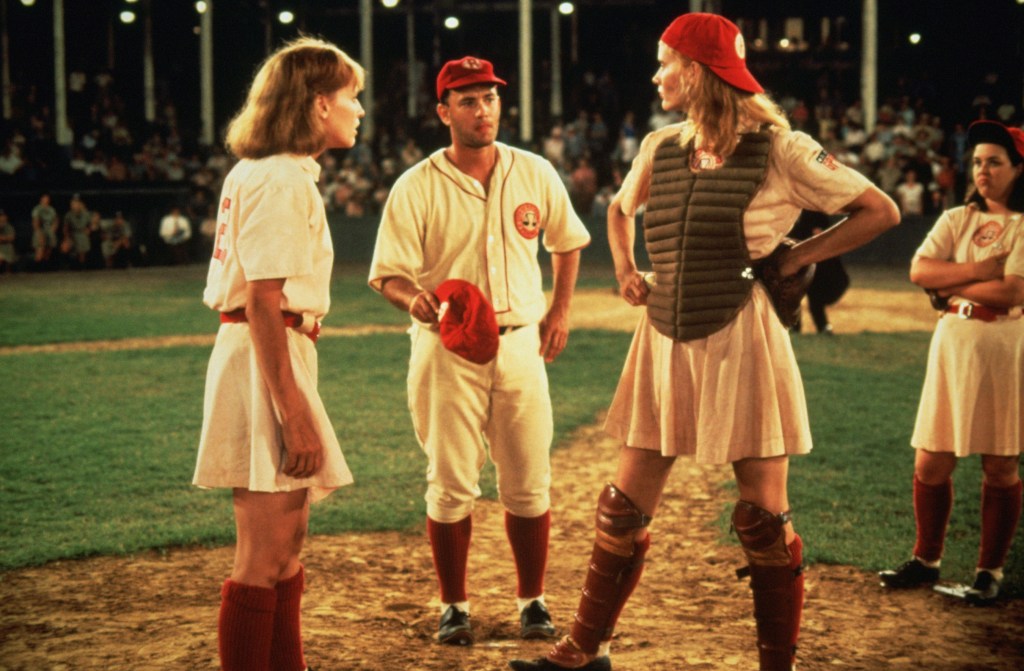
“Can I have it?” he asked Marshall.
But the director, who famously never pulled punches, told Hanks he wasn’t right for the part. (Hanks previously landed his role in 1988’s “Big” only after Marshall, who also directed that movie, convinced Harrison Ford he was “too cool” for the lead role.)
Hanks was too cute, meaning audiences might incongruously swoon over his bitter and unlikable drunk of a character.
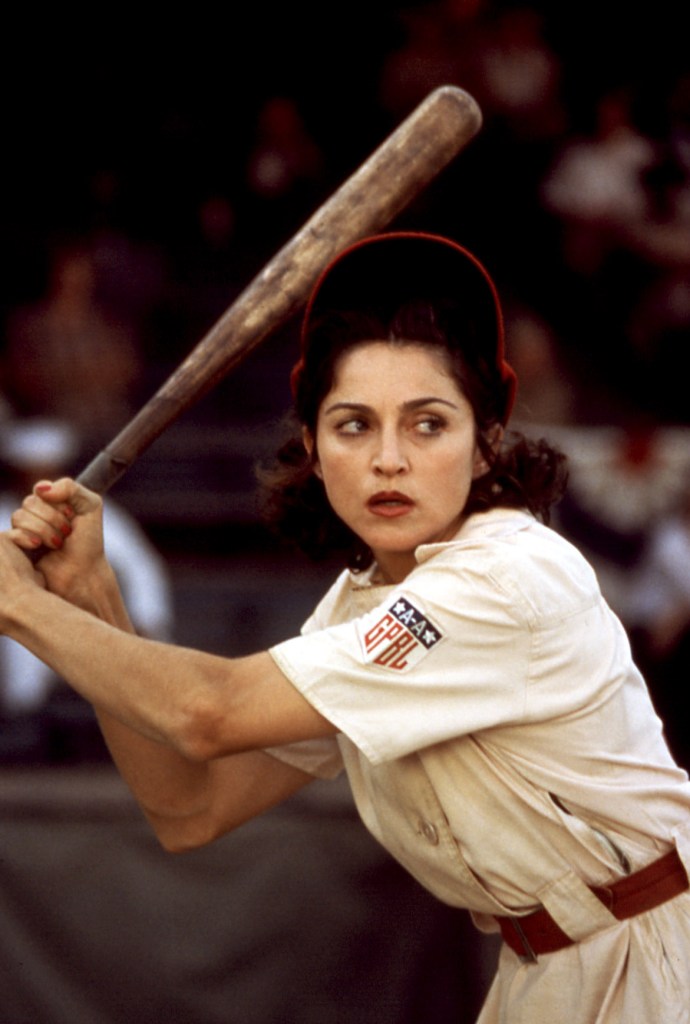
“Eat! You’ve got to eat. Get fat,” Marshall told Hanks.
She also unapologetically told Rosie O’Donnell not to eat.
“Well, I say those things if they need to be said,” Marshall later admitted.
Elizabeth Perkins, who also starred in “Big,” wasn’t spared Penny’s nonchalant criticism, either. The director told her she’d failed the “League” audition because “you throw like a girl.”
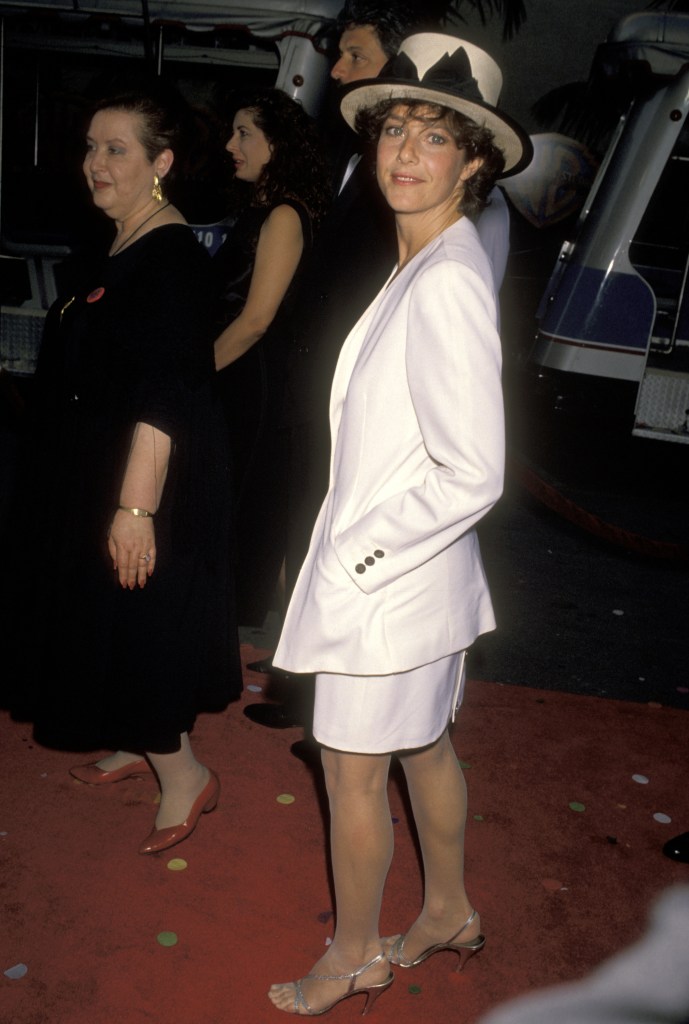
But perhaps the most influential decision was casting Madonna in the the role of “All the Way” Mae, a spitfire of a character who played ball, cracked wise, and did a mean jitterburg.
Winger wasn’t having any of it and made it clear she thought the Material Girl’s presence was no more than “shameless stunt casting.” She threatened Marshall, telling the director that if Madonna stayed, “it would be a long, hot summer,” according to [former Columbia Pictures head] Frank Price.
But Winger was a notorious crank and Madonna then the most recognized woman on the planet.
So Madonna stayed and Debra Winger paid around $3 million to get lost.
Geena Davis was sent in to try out for the Dottie role, though the towering beauty had no baseball chops.
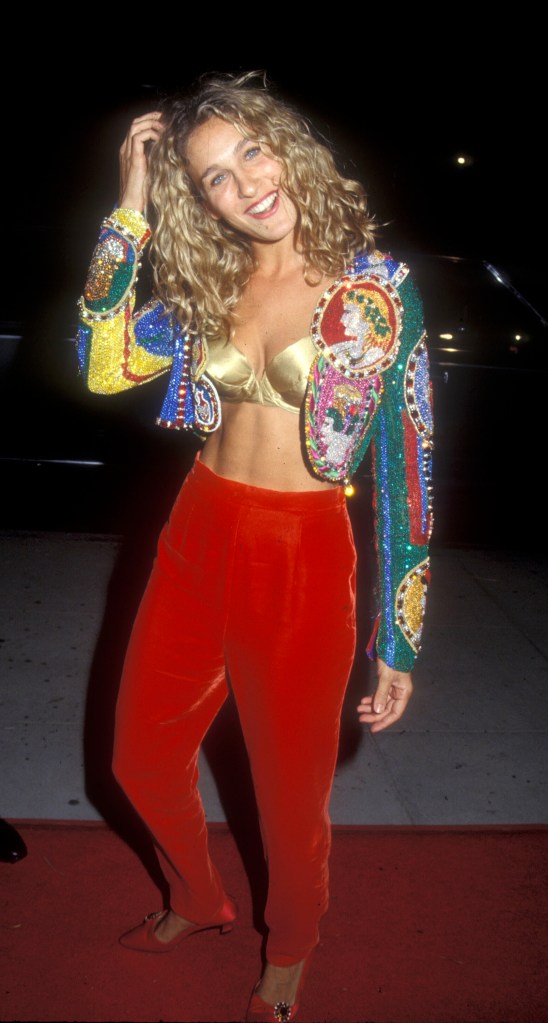
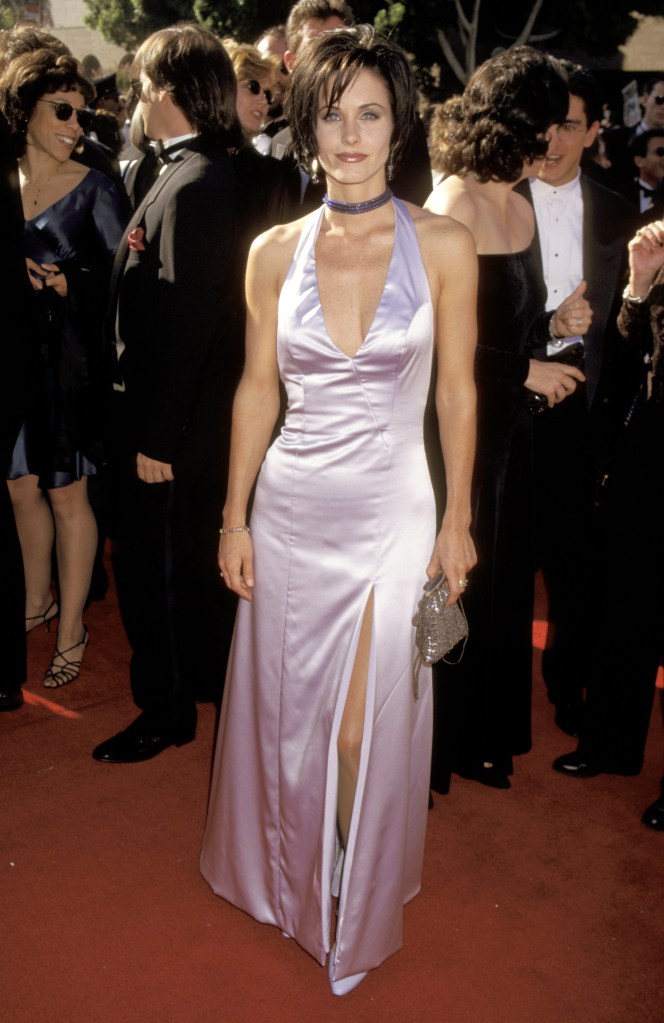
Davis’s agents told her to absolutely not play catch with Marshall.
So Geena dolled herself up in high heels and a mini-skirt when visiting the director’s home.
“Fully five minutes went by before I was out on the f–king lawn, throwing a f–king baseball,” Davis recalls. She was terrible but got the job because she was “trainable,” according to Marshall.
With filming underway in Chicago and Evansville, Indiana, things devolved into a “three-ring circus” when Madonna hit town.
She worked harder than anyone on set — rising at 4 a.m. to jog 8 or 10 miles and practice baseball even before filming started each day — but it was clear the Queen of Pop had no boundaries.
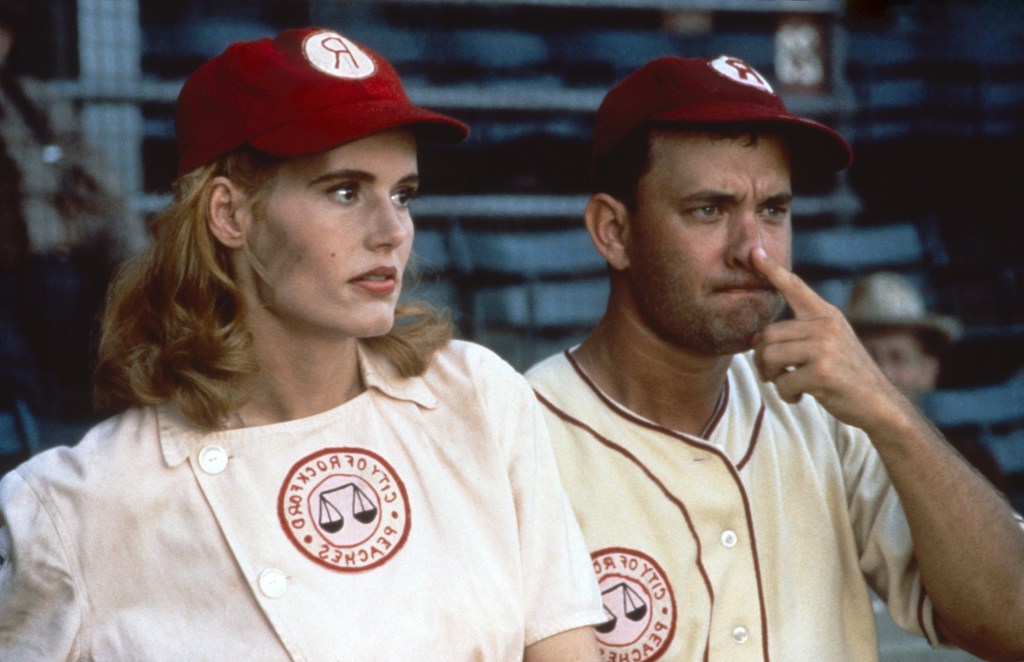
When one baseball-playing female extra introduced Madonna to her lady “roommate,” Madge looked at the two and scoffed at their efforts to be secret lovers.
“Roommate, huh? Yeah, right.”
Marshall famously ate anything, including piles of bacon and plenty of her beloved “meat rockets” (hot dogs), but Madonna stuck to a plant-based diet and expressly told the on-set caterer she refused to eat anything “that takes a s–t.”
When the caterer later asked Madonna if she’d had breakfast one day, she shrugged and answered, “I sucked James Woods’ c–k in the elevator.”
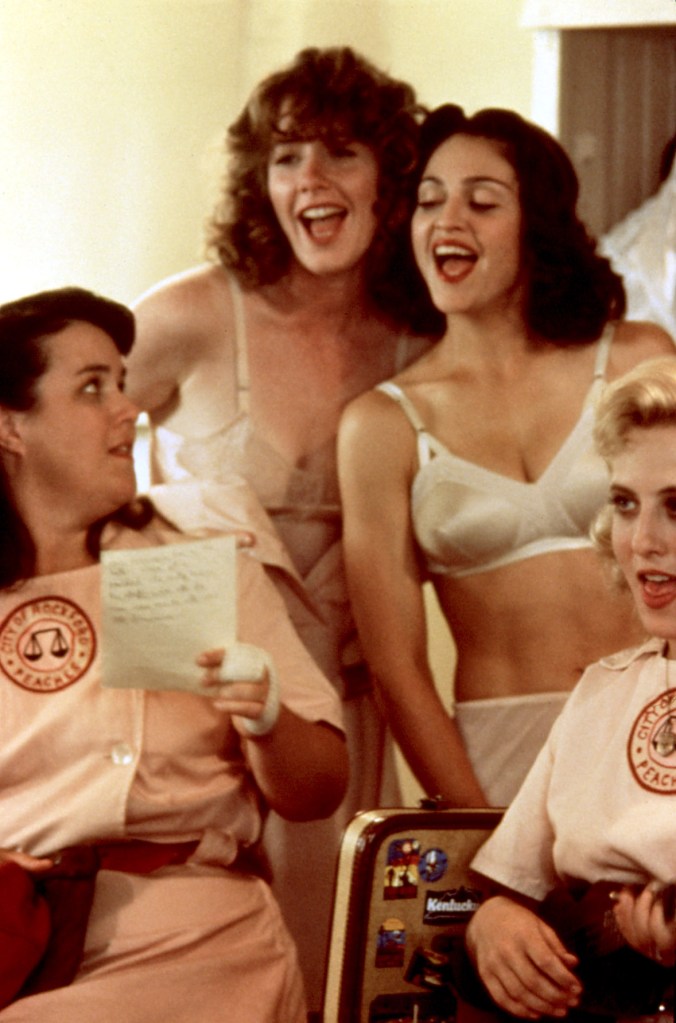
When her panties became visible under her vintage dress during a dance scene, Madonna was told to keep her legs closed. “Story of my life,” she muttered.
Madonna wasn’t the only rabble-rouser.
Davis was notably smart, a card-carrying member of Mensa, but she also liked replacing the cream in Oreos with mayonnaise and handing them out to unsuspecting cast and crew.
Petty once convinced Madonna that though she’d be off-screen in one scene she’d still have to keep making out with “Guy at Bar” character for the duration of filming, which the singer gamely did for the next 90 minutes.
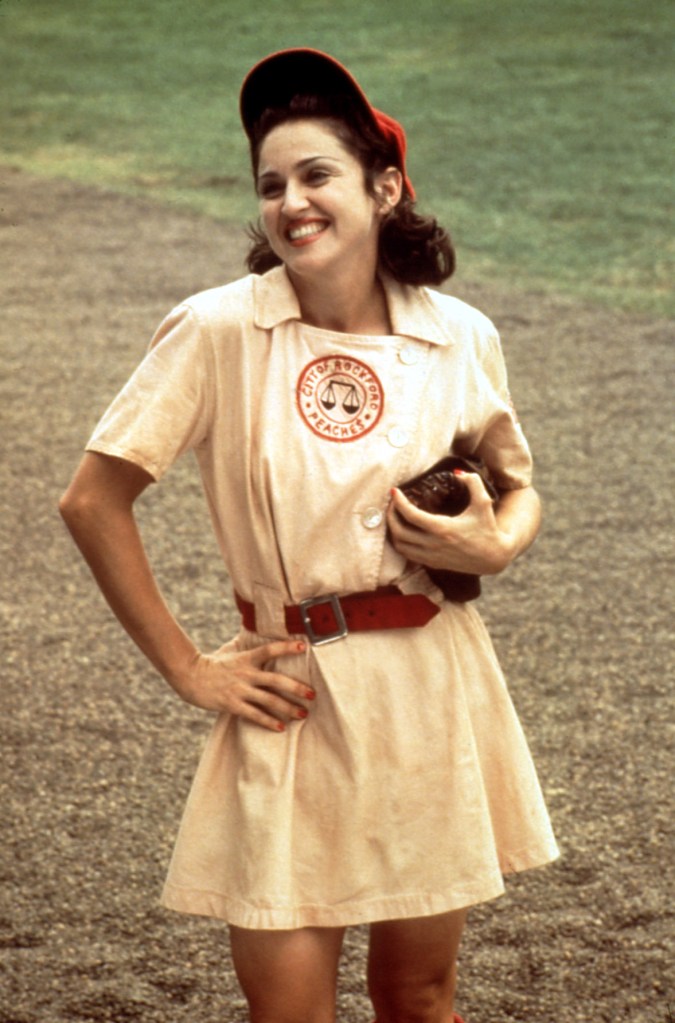
One day, an anonymous newsletter called “Peach Phuzz” was shared on-set, highlighting gossip about things like cast hangovers, Davis’ surprising cigarette habit and Madonna’s random “canoodling” (with either a married actress or a spoken-for male crew member — or maybe both?).
It was eventually revealed that the Gossip Girl behind “Peach Phuzz” was none other than Hanks.
The movie’s many actresses and female ballplayers working as extras were housed in the same hotels, soon leading to myriad messy affairs.
Even the straight girls couldn’t help but dabble in Sapphic love.
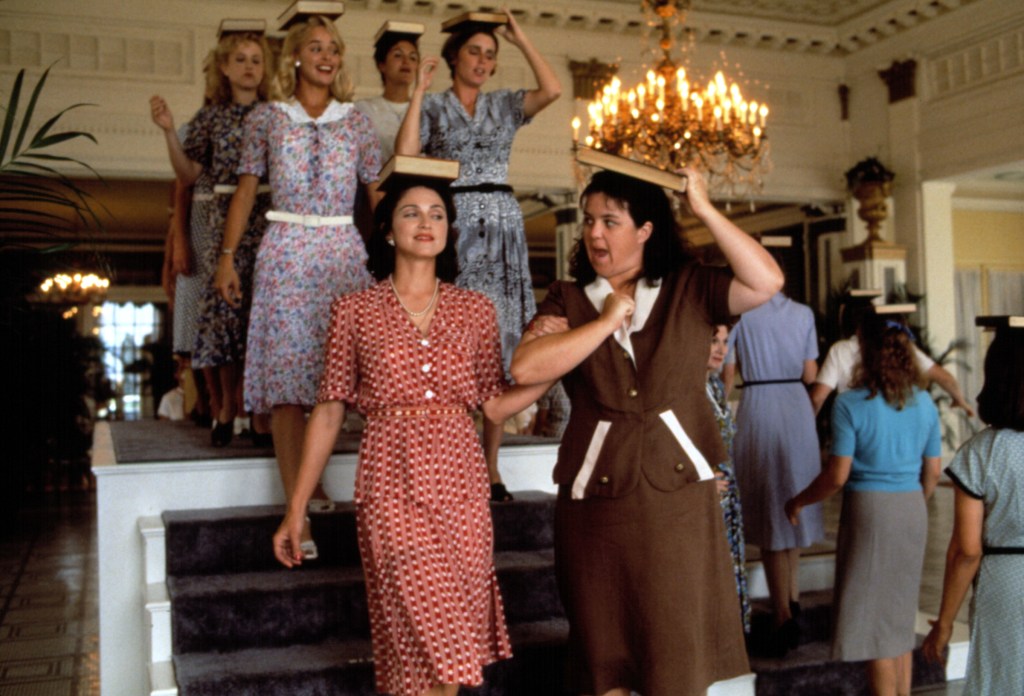
“All sorts of pairings and couplings were happening …. Then more pairings and couplings …. And then there were a lot of arguments and breakups and stuff,” Carlson quotes one actress as saying.
“But I don’t remember any stories where it was not a positive thing,” she concludes.
All that female energy in “A League of Their Own” gave many movie executives pause.
They couldn’t imagine how an all-female cast could carry a sports movie.
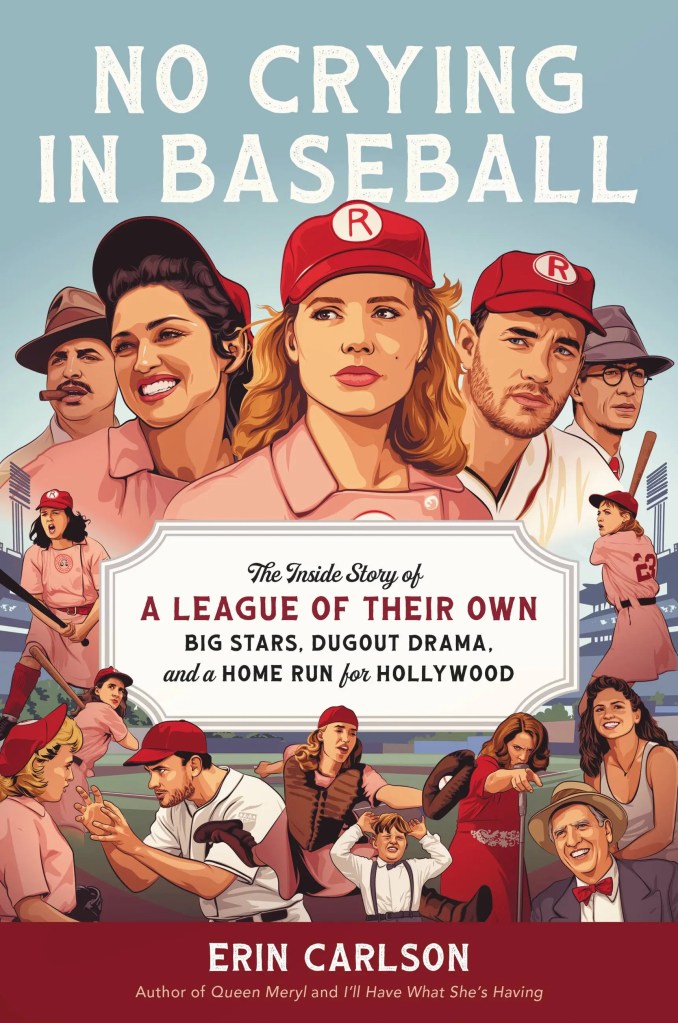
Industry scuttlebutt suggested Penny Marshall’s girls’ baseball film might be in trouble — possibly a flop on the scale of the previous year’s “Hook” or “Bugsy.”
But when a producer showed an early cut to his young daughters, who were 10 and 6 years old, they thought it was the best movie they’d seen since “Wayne’s World” and even wanted to dress up at Halloween like Rockford Peaches.
“A League of Their Own” would go on to make $132 million, more than any other baseball movie ever — more than “Field of Dreams” or “Bull Durham” or “The Natural” or “Moneyball.”
Read the full article Here


